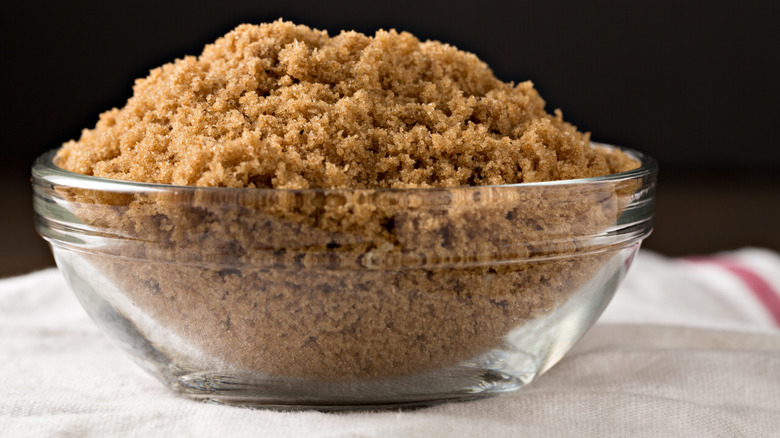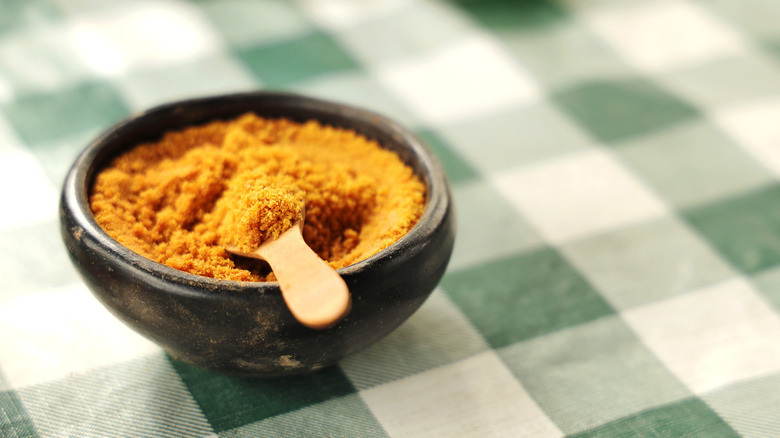Why You'll Be Hearing About Brown Sugar For All Of 2025
Brown sugar, a pantry staple known for its rich molasses-infused flavor, is set to dominate the culinary scene throughout 2025. According to T. Hasegawa's Food and Beverage Trends Report, it has been crowned the "Flavor of the Year." Recent consumer preference surveys indicate a strong inclination towards caloric sweeteners, with brown sugar ranking just behind honey. This surge in popularity can be attributed to brown sugar's versatility in elevating both sweet and savory dishes.
Known for imparting caramel-like notes and a chewy texture, brown sugar is a favorite in baked goods like cookies, cakes, and pastries. Its hygroscopic nature allows it to retain moisture, resulting in softer and more flavorful treats. Brown sugar's acclaim is evident in its increasing presence in craft coffee shops, tea houses, and cocktail bars, where it's featured in lattes and specialty drinks, ranging from brown sugar boba teas to old fashioneds.
Cultural influences have fueled its popularity, particularly the global embrace of Asian-inspired recipes like soy and brown sugar-glazed pan-fried tofu and sweet beverages like Taiwanese brown sugar milk tea. These dishes showcase the ingredient's ability to provide depth, warmth, and balance. Online recipes and food blogs frequently feature unexpected ways to feature brown sugar in cooking. From stir-fry to salad dressings, brown sugar's applications are endless, reflecting a cultural shift toward flavors that combine nostalgia and innovation.
Health implications to keep in mind
Brown sugar's roots trace back to the early days of sugar production when raw cane sugar, rich in molasses, was less refined. Unlike white sugar, which undergoes extensive refining to strip molasses and minerals, unrefined brown sugar retains some of its natural components, including calcium, potassium, iron, and magnesium, due to the presence of molasses, which explains why it's generally more expensive than white sugar. Some studies suggest that unrefined sugarcane products possess antioxidant properties due to phytochemicals and polyphenols, which may contribute to reducing inflammation. Additionally, brown sugar may have benefits like immune system support, relieving menstrual cramps, and even decreasing cancer risks.
However, there is also refined brown sugar, which involves simply adding molasses back into white sugar, so there are reasons not to believe the myth that brown sugar is healthier than white sugar. The mineral content in brown sugar is minimal and its caloric value is comparable to that of white sugar. Excessive consumption of any sugar can lead to health issues such as weight gain and increased blood pressure.
Like all sugars, brown sugar should be consumed in moderation. Still, it's worth mentioning how its ongoing rise in popularity underscores its ability to blend cultural significance with modern culinary creativity. As brands and home chefs alike embrace its potential, expect to see brown sugar at the forefront of menus, products, and trends in 2025.

